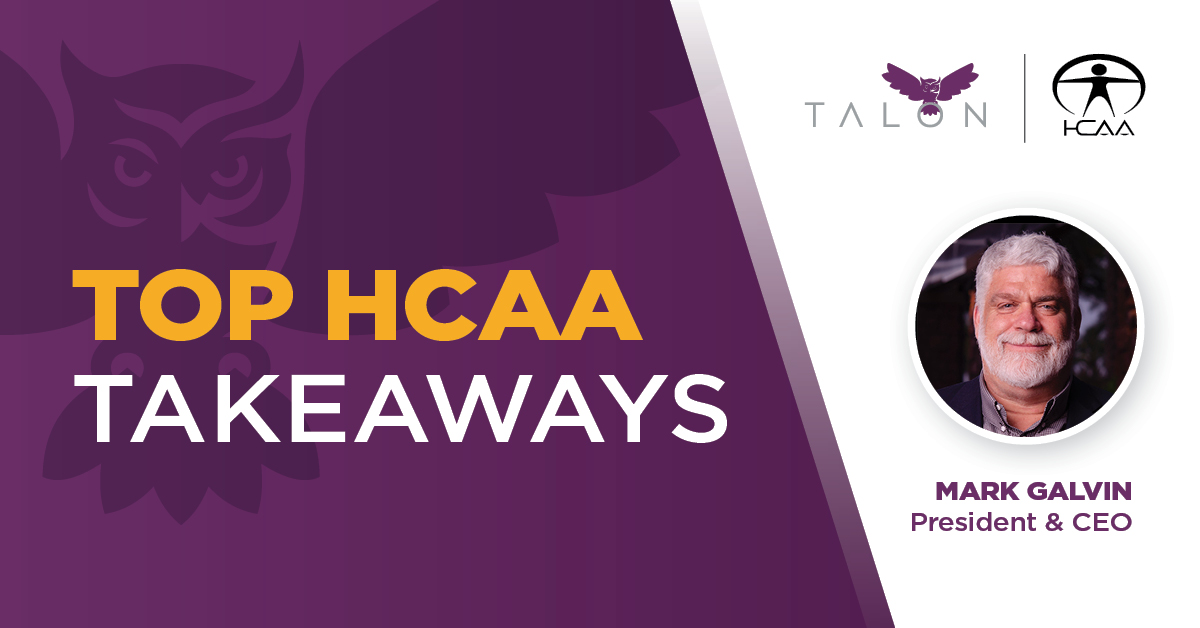
If you attended the HCAA Executive Forum in Las Vegas, we hope you had the opportunity to attend the panel discussion moderated by TALON President and CEO Mark Galvin, Watch Out for the Sharks in the Water, They Smell Blood. And a huge shoutout to the panelists, Jamie Greenleaf and Julie Selesnick, for making it such a fascinating and informative discussion!
If you missed it, watch the full session now: https://vimeo.com/hcaa/download/805273734/02c92ae2b4
Here are the top 5 takeaways:
- The Consolidated Appropriations Act (CAA) of 2021 has brought a level of transparency to the health care industry and transparency is good for everybody (except those who have profited greatly by operating in the shadows). Julie and Jamie referenced and compared the current changes to the transformation of the retirement industry over two decades ago. The same shift happened due to extensive regulations governing defined contribution plans like (401k)s, 403(b)s and 457(b)s—mandated transparency. In the retirement space, similar transparency rules addressed overhead costs and financial excesses that had previously been part of the package for employers and employees. The reality is that this is a rinse and repeat happening in the health care industry, where there is far more waste and excess to be addressed than ever found on the retirement side.
- TPAs will need to review their contracts with their carriers to ensure that they are not in conflict with the employer’s new Fiduciary duties and responsibilities. Unfortunately, in this new reality many TPAs will find themselves with conflicting loyalties and duties, set forth in non-complementary contracts with carriers and clients. They will be asked to pick a side.
- Two areas that are a focus of litigation and the DOL are around the removal of “gag clauses” and compensation disclosures. Guidance was just released on 2/23/23 from the DOL around the removal of gag clauses and the filing of the attestations. Compensation disclosures are front and center as well. The House Committee on Education and Labor unequivocally states that Congress intended for the disclosure provisions in the CAA to apply to PBMs and TPAs and asks DOL to issue guidance clarifying this. Employer’s/plan sponsors not following the rules set out for 408(b)(2) disclosures and not reporting non-compliant service providers are putting themselves at risk for enforcement action or litigation down the road.
- The time for action is now and the best advice is to support employers in helping them understand the new liabilities and opportunities they have, and to figure out how to reconcile conflicting provisions in your own TPA contracts that are no longer in compliance with the law and require you to keep information from your plan clients that the law requires they have access to. The CAA 2021 has provided the tools to cost containment and better outcomes for their employees.
- The prudent employers will be at the table and the imprudent are on the menu as litigation and enforcement ramp up.
